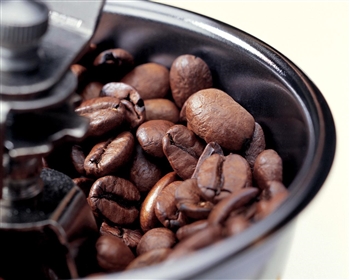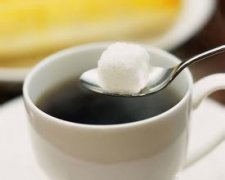The difference between Chinese Tea Culture and French Coffee Culture

Fifty years ago, China formally established diplomatic relations with France. In the bipolar pattern in the 1960s, this breakthrough caused a sensation in the world. Great progress has been made in the economic, political and cultural exchanges between China and France over the past 50 years. Today I want to compare the difference between Chinese tea culture and French coffee culture.
As we all know, tea and coffee have now become two important drinks sweeping the world. The fragrance of tea is refreshing, and the fresh and elegant artistic conception of tea makes people intoxicated. The mellow aroma of coffee is even more infatuating, making people in the realm of selflessness endless aftertaste. China is the birthplace of tea culture, and tea plays an important role in people's daily life. as the saying goes, there are seven things: firewood, rice, oil, salt, soy sauce and vinegar tea; similarly, coffee is as important to the French as tea is to the Chinese. Absolutely more. The French said that I was not in the cafe, but on the way to the cafe. A seemingly simple joke is a true portrayal of French life. Because coffee has really become a necessity of French life, breakfast, eating delicious croissant, to a cup of sweet milk coffee is really a kind of extreme enjoyment; lunch break, after work, a cup of coffee refreshed, refreshed to continue to work; in the evening after a big meal to drink a cup of expresso to help digestion is also very good for health. The two great nations of China and France, both have a persistent pursuit of beautiful things, and constantly explore to sublimate them into culture. Chinese tea tasting pays attention to tea ceremony, while French coffee pays attention to environment and sentiment. Today, tea and coffee have been derived into tea culture and coffee culture, pursuing a kind of life culture of elegance, relaxation, meditation, enjoying life and paying attention to taste. Drinking tea can cultivate self-cultivation, cultivate sentiment, taste life, participate in Zen enlightenment, and achieve spiritual enjoyment; drinking coffee is to experience elegant taste, romantic style and poetic and picturesque realm. But apart from the similarity between them, is there any difference? Let's make a comparison in the following aspects today.
There are different opinions on the origin of tea, so far there is no unified view, and none of the evidence mentioned can prove which statement is absolutely correct. Many people think that the birthplace of tea was directly or indirectly spread from China to other countries in the world. It is believed that drinking tea and growing tea were pioneered by the Chinese, but there is also evidence that places such as India and Africa may also be the birthplaces of tea. Even in China, there are several theories about the earliest place of origin, such as Southwest, Sichuan, Yunnan, East Sichuan, West Hubei, Jiangsu and Zhejiang, etc., especially the time of origin is even more different, such as Shennong, Western Zhou, Qin and Han dynasties, etc., and the folk mythology of Shennong crystal belly and Dharma eyelids changing into tea trees adds mystery to the origin of tea. The same is true of the origin of coffee, in which Christianity found that "the story of the shepherd" and Islam said "Arab monks" were the most widely spread among countless coffee discovery legends. However, it is consistent that historians agree that the birthplace of coffee is caffeine in Ethiopia.
Coffee was introduced into France by the Turkish ambassador in 1669. After that, coffee culture took root and developed in this hot land. It can be said that although France is not the birthplace of coffee, the French pushed the cultural tide of coffee to its peak. It can be said that the French drank coffee to the extreme. With regard to the theory of origin, both of them have complicated legends and myths, and there are all kinds of guesses and stories, but the difference is that China always seems to be the protagonist in the origin of tea. France, on the other hand, seems to be a bit of a guest in the origin of coffee.
Important Notice :
前街咖啡 FrontStreet Coffee has moved to new addredd:
FrontStreet Coffee Address: 315,Donghua East Road,GuangZhou
Tel:020 38364473
- Prev

Argentine Historical and Cultural legends in the Classic Coffee list
Buenos Aires, the capital of Argentina, is said to be a city with more cafes than Paris. There are currently 3250 coffee shops in Buenos Aires, which means there is one coffee shop for every 1000 people in the city. Argentine media wrote that the coffee shop is the load of daily life and historical heritage. It can be used not only for people to call friends and talk, but also to be isolated from the group.
- Next

Coffee Story Coffee Culture in Pu'er Dakaihe Village
There is no winter feeling in Pu'er, Yunnan Province at the end of November. King Ka Nong Middle School in Dakaihe Village, Nanping Town, is drying peeled coffee fruits in his yard. In 2013, many Yunnan farmers, including the veteran coffee farmer, who has been growing coffee for more than 20 years, encountered a series of problems at low purchase prices, approaching the cost line. Although the purchase price of coffee is relatively low now, I believe
Related
- How did the Salvadoran coffee industry develop in Central America?
- What exactly does the golden cup extraction of coffee mean?
- The Origin of Coffee flower
- [2023 Starbucks World Earth Day] there are more meaningful things besides free Starbucks coffee!
- What kind of coffee is there in Spain? 9 Flavors of Spanish Coffee
- Aromatic African coffee| Kenya's coffee culture and historical production area
- Liberica Coffee Bean knowledge: the characteristics of Liberian Coffee beans of the three original species of Coffee beans
- The origin and formula of Spanish latte introduces the taste characteristics of Bombon coffee in Valencia, Spain.
- How to adjust the solution of over-extracted coffee
- What is the tasting period of coffee beans? What is the period of coffee and beans? How should coffee wake up and raise beans?

